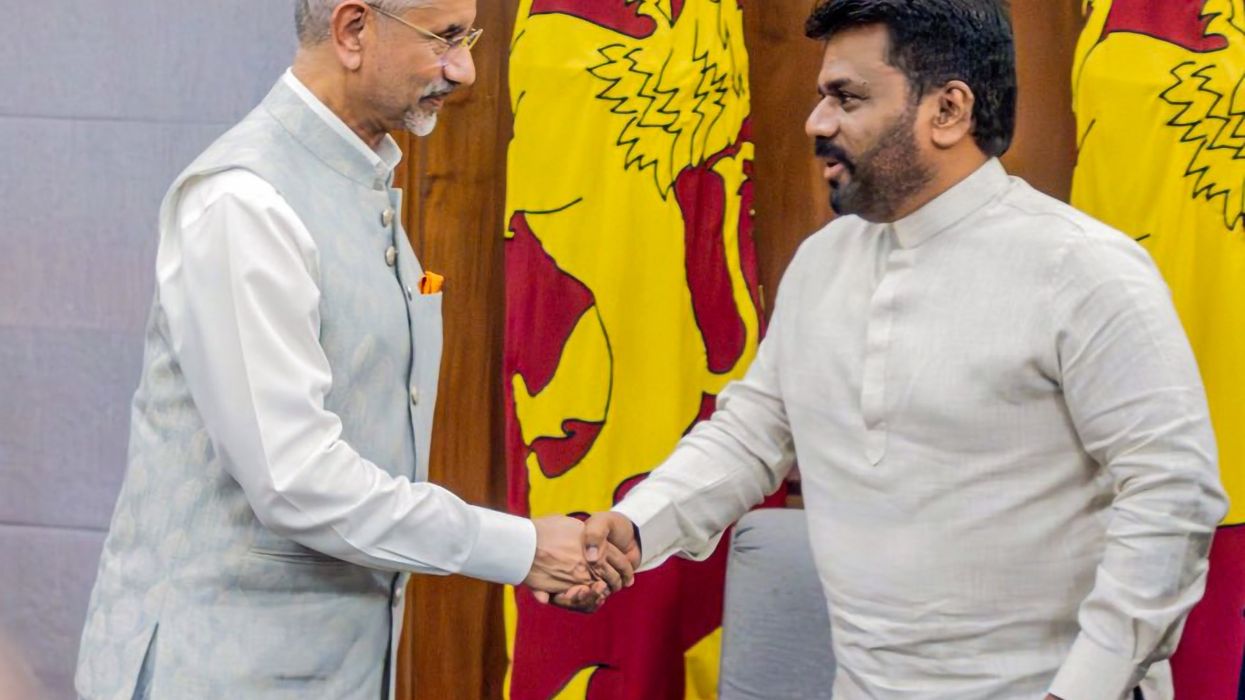INDIA has completed 60 grant projects in Sri Lanka and is currently implementing 16 more, focusing on investments and grants rather than debt instruments, India’s envoy to Sri Lanka said on Tuesday (15).
Santosh Jha, the High Commissioner of India to Sri Lanka, also reaffirmed India’s support for island nation’s debt restructuring efforts, securing IMF support, and extending financial support to overcome immediate challenges.
He stressed the importance of a robust partnership between India and Sri Lanka, highlighting their shared history at the 45th National Conference of CA Sri Lanka.
“India is looking at assisting development of Sri Lanka through investments and grants and relatively less through debt instruments. This, we believe, serves Sri Lanka better given its recent experiences with debt burdens,” the Indian envoy was quoted as saying by news portal NewsFirst.lk.
Last week, Sri Lanka said the visit by India’s foreign minister, S Jaishankar, was important in ending its debt restructuring with international sovereign bond holders.
Jaishankar, who made a daylong trip to Sri Lanka on October 4, was the first foreign dignitary to visit the island nation after Anura Kumara Dissanayake assumed office as the new president on September 23, following a tightly contested election.
Jha said, “Our development projects are now implemented in all 25 districts of Sri Lanka. We have completed 60 grant projects and are implementing 16 more at this time.”
He also spoke of a connectivity corridor between India and Sri Lanka to enhance access to global markets and opportunities, the portal said.
The diplomat reiterated that India and Sri Lanka should work together, and said, “We must work hand in hand and grow and prosper together. Like it or not, we are naturally intertwined and interlinked by geography, history, tradition, and by our future. We are irreplaceable, indispensable, and inextricable as partners.”
India helped Sri Lanka with about $4 billion (£3.06bn) in assistance to enable the island nation to recover from a deep economic crisis after it announced the default on over $51bn (£39.02bn) foreign loans.
In July, the Sri Lankan government reached a debt restructuring deal with international sovereign bondholders after protracted negotiations with countries such as China, India, France and Japan.
Sri Lanka is currently in negotiations with the IMF for the next tranche of the $2.9bn (£2.21bn) bailout package for which the IMF has made external debt restructuring conditional.
World Bank doubles growth forecast to 4.4 per cent
CASH-STRAPPED Sri Lanka’s economy was recovering faster than expected, the World Bank said last Thursday (10), doubling the island’s growth forecast to 4.4 per cent for 2024.
Tourism and financial services had bounced back, along with improvements in construction, leading to the bank’s upward revision of the forecast of 2.2 per cent made in April.
Sri Lanka’s growth is expected to moderate next year to 3.5 per cent and a slower 3.1 per cent in 2026, the Bank said.
The island’s 4.4 per cent growth forecast for 2024 was, however, lower than the south Asia region’s 6.4 per cent, revised data of the World Bank showed.
The bank “cautions” that Sri Lanka’s recovery remained fragile and hinged on maintaining stability. It also called for completing a restructure of Sri Lanka’s external debt and continuing reforms to increase medium-term growth and reduce poverty.
The international lender last Monday (7) granted a new $200 million (£153.05m) loan to bolster economic recovery, the first foreign funding since leftist president Anura Kumara Dissanayake won elections.
Dissanayake, a selfavowed Marxist, took power last month on the back of public anger over the island’s 2022 economic meltdown and promising to reverse steep tax hikes.
The new administration is maintaining a $2.9 billion (£2.21bn) International Monetary Fund (IMF) bailout, but has said it will renegotiate some of the harsh austerity measures.
Sri Lanka defaulted on its external debt in 2022 after running out of foreign exchange to finance even the most essential imports such as food, fuel and medicines.
The World Bank has previously said the island’s economic crisis had almost doubled the number of people pushed into poverty, or living on less than $3.60 (£2.75) a day.
About 13 per cent of Sri Lanka’s 22 million population lived in poverty just before the 2022 crisis. The poverty figure almost doubled to 25.9 per cent in 2023.
The World Bank expects poverty levels to remain high for the next two years.




